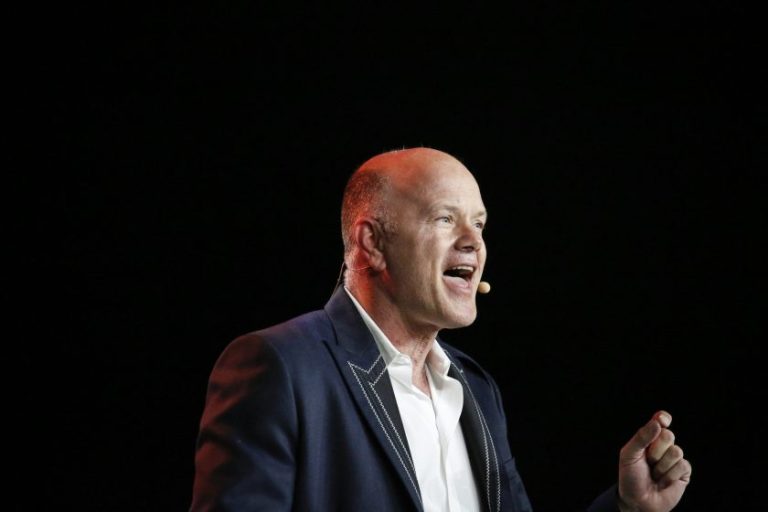
Galaxy CEO Mike Novogratz said trillions of dollars in boomer wealth will end up in Bitcoin. Marco Bello – Getty Images
Investors will soon prefer trading digital gold over the real deal, Mike Novogratz, CEO of Galaxy Digital, told Bloomberg TV in an interview Thursday afternoon.
Although Bitcoin's current market capitalization is not even a tenth of that of gold — $1.21 trillion compared to $13.79 trillion — the highest cryptocurrency by market capitalization, he noted, may soon replace the store of wealth known around the world.
“It will be, and it won't wait. It will be bigger than gold,” Novogratz said.
Of the estimated $85 trillion in baby boomer wealth, he says, the majority is managed by registered investors, about half of whom have access to 10 recently approved spot bitcoin ETFs. If platforms like BlackRock and Fidelity, largely backed by baby boomer wealth, encourage their clients to allocate at least 1% to 3% of their assets to cryptocurrencies, that amounts to trillions in new liquidity.
“This is probably the first time in the history of Bitcoin that we have discovered a real price,” he said, as institutional and retail investors had not been able to access it before.
Novogratz also predicts that once the boom wealth bubble has passed through a generation, the allocation of digital assets should accelerate.
“For every Charlie Munger – may God have mercy on him – who passes away, this money finds its way to Generation Z and Millennials, and they feel more comfortable with digital gold than with old, old gold,” he said.
However, Novogratz warned that a Bitcoin price correction could occur in the coming days or weeks: “I would say we have reached very frothy levels.” But he doesn't see Bitcoin falling below the mid-$50,000s before rising again.
Bitcoin rose to $63,968 on Wednesday, approaching its all-time high of around $69,000, a move that exhausted cryptocurrency providers like Coinbase, which suffered outages as app and website traffic surged.
Demand has been boosted by massive net inflows into ETFs, which set a new record for daily trading volumes on Wednesday, with activity exceeding $7.6 billion, according to Bloomberg data. The previous day, BlackRock saw a $520 million inflow into its iShares Bitcoin Trust (IBIT) ETF, its largest daily inflow to date.
Furthermore, on April 19, Bitcoin is preparing to undergo the so-called halving, reducing the daily supply of newly minted coins by 50%, representing another tailwind. This event has historically caused prices to rise, rising on average by 14% in the period leading up to it.
The way the cycle is working is already “really different” from the previous three halvings, because we are approaching an all-time high about two months before the event, said Matteo Greco, an analyst at Fineqia International. “This is not something that has happened historically before,” he said, adding that bitcoin typically peaks six to 12 months after its halving.
ETF inflows averaged $500 million on Monday and Tuesday, according to Bloomberg data, which equates to about 10,000 bitcoins purchased daily. However, miners are minting only 900 bitcoins, which will soon be 450, said Markus Thelen, CEO of 10x Research. luck.
“Demand has been met by inventory on exchanges, but that inventory is also dwindling very quickly,” he said.

